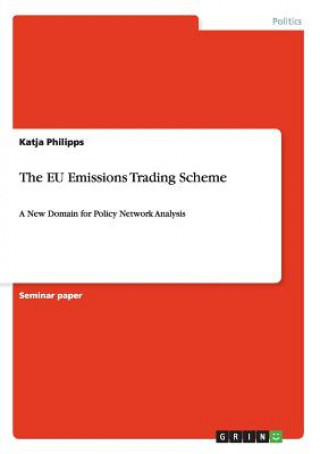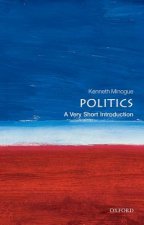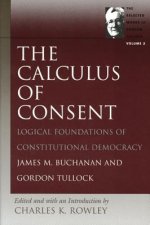
Kód: 02143376
EU Emissions Trading Scheme
Autor Katja Philipps
Seminar paper from the year 2012 in the subject Politics - International Politics - Topic: European Union, grade: 1,0, University of Münster (Institut für Politikwissenschaft), course: European Environmental Politics, language: En ... celý popis
- Jazyk:
 Angličtina
Angličtina - Vazba: Brožovaná
- Počet stran: 26
Nakladatelství: Grin Publishing, 2013
- Více informací o knize

Mohlo by se vám také líbit
-

Art Basel Miami Beach Dec 5-8 2013
1689 Kč -

Colonial Psychiatry and the African Mind
1460 Kč -

London City Highlights
501 Kč -

Charlton Men
455 Kč -

Higher Form of Cannibalism?
684 Kč -

Hoehere Qualitat des Testats bei einem Big4-Wirtschaftsprufer?
1084 Kč -

Handbuch der Rechtspsychologie
1480 Kč
Dárkový poukaz: Radost zaručena
- Darujte poukaz v libovolné hodnotě a my se postaráme o zbytek.
- Poukaz se vztahuje na celou naši nabídku.
- Elektronický poukaz vytisknete z e-mailu a můžete ihned darovat.
- Platnost poukazu je 12 měsíců od data vystavení.
Více informací o knize EU Emissions Trading Scheme
Nákupem získáte 100 bodů
 Anotace knihy
Anotace knihy
Seminar paper from the year 2012 in the subject Politics - International Politics - Topic: European Union, grade: 1,0, University of Münster (Institut für Politikwissenschaft), course: European Environmental Politics, language: English, abstract: Due to ever mounting scientific evidence, today neither climate sceptics nor climate believers deny the fact that climate change is occurring and that human activity can be regarded as a prime cause. Uncertainty solely remains about the precise relationship between specific concentrations of particular greenhouse gases most importantly water vapour and carbon dioxide and changes in global temperatures. It is beyond doubt that certain gases in the atmosphere contribute to the so-called greenhouse effect by trapping heat. Human activity like burning carbon-based fuels, but also deforestation and ploughing is intensifying this effect and causing a constant rise in carbon dioxide concentrations. The growing empirical evidence for climate change triggered a global response, even though some authors classify it as meagre (Helm 2008). In 1992, 154 countries joined the United Nations Framework Convention on Climate Change (UN FCCC), to cooperatively consider what they could do in order to limit average global temperature increases and the resulting climate change. The UN FCCC built upon the Intergovernmental Panel on Climate Change (IPCC) established in 1988, an international scientific collaboration entrusted with the task to provide the world with a clear scientific view on the current state of knowledge in climate change and its potential environmental and socio-economic impacts (IPPC n.d.). The UN FCCC finally kicked off the process which culminated in the Kyoto Protocol, adopted in Japan on 11 December 1997 and entering into force on 16 February 2005. The Protocol commits 37 industrialized countries and the European Union (EU) to stabilize their greenhouse gas emissions and sets binding emission reduction targets for a certain period (cf. UN FCCC n.d.). Being of particular relevance for this paper, the Kyoto agreement enabled the European Union Emissions Trading Scheme (EU ETS) to get under way as a prototype for a global emissions-trading regime. The aim of this paper is to have a closer look at the EU ETS and to examine whether the development of the regime can be explained by using the lens of policy network analysis a concept that appears particularly well suited to grasp the essence of multi-level governance in the European Union (cf. Jachtenfuchs 2001:255). The central question is whether the actors involved in the development of the EU ETS can be identified and classified by using policy network analysis as a theoretical framework.
 Parametry knihy
Parametry knihy
Zařazení knihy Knihy v angličtině Society & social sciences Politics & government
1004 Kč
- Plný název: EU Emissions Trading Scheme
- Podnázev: A New Domain for Policy Network Analysis
- Autor: Katja Philipps
- Jazyk:
 Angličtina
Angličtina - Vazba: Brožovaná
- Počet stran: 26
- EAN: 9783656505945
- ISBN: 3656505942
- ID: 02143376
- Nakladatelství: Grin Publishing
- Hmotnost: 45 g
- Rozměry: 210 × 148 × 2 mm
- Datum vydání: 02. October 2013
Oblíbené z jiného soudku
-

Political Writings
734 Kč -

Master of the Senate
589 Kč -

Justice and Development Party in Turkey
1257 Kč -

Flash Boys - A Wall Street Revolt
258 Kč -

State and Revolution
116 Kč -

Children of the Matrix
454 Kč -

Wretched of the Earth
276 Kč -

The Trigger
587 Kč -

My Autobiography
306 Kč -

The Lords of Poverty: The Power, Prestige, and Corruption of the International Aid Business
325 Kč -

GREEN BOOK
195 Kč -

Cold and the Dark
482 Kč -

Politics
1301 Kč -

Age of Ambition
303 Kč -

Powershift
232 Kč -

Empire of Lies
402 Kč -

Xi Jinping: The Governance of China
791 Kč -

RFK
407 Kč -

Althusser And Theology
970 Kč -

History of European Conservative Thought
668 Kč -

Automated Democracy
601 Kč -

Case Against the Sexual Revolution
392 Kč -

Accidental Superpower
455 Kč -

Lee Kuan Yew
495 Kč -

Giants
494 Kč -

Fight Like A Girl
276 Kč -

Identity
316 Kč -

Deep State
386 Kč -

Next Decade
397 Kč -

Return of Marco Polo's World
399 Kč -

Force of Reason
493 Kč -

STRANGE DEATH OF EUROPE
473 Kč -

Queer Encounters with Communist Power
559 Kč -

Against Civilization
389 Kč -

Yoga of Eating
287 Kč -

Political Brain
357 Kč -

Politics: A Very Short Introduction
249 Kč -

Out of the Wreckage
482 Kč -

Urban Warfare in the Twenty-First Century
673 Kč -

Nuclear Weapons and Foreign Policy
576 Kč -

Trade Marketing, Category Management, and Shopper Marketing
2257 Kč -

Spirit of the Laws
598 Kč -

Psychology of Politics
557 Kč -

Reveille for Radicals
345 Kč -

Liberalism and Its Critics
854 Kč -

Voices from the Contemporary Japanese Feminist Movement
1343 Kč -

Calculus of Consent
405 Kč -

Chinese Machiavelli
1914 Kč -

Joint Terminal Attack Controller (JTAC) Training Program
532 Kč
Osobní odběr Praha, Brno a 12903 dalších
Copyright ©2008-24 nejlevnejsi-knihy.cz Všechna práva vyhrazenaSoukromíCookies



 Vrácení do měsíce
Vrácení do měsíce 571 999 099 (8-15.30h)
571 999 099 (8-15.30h)